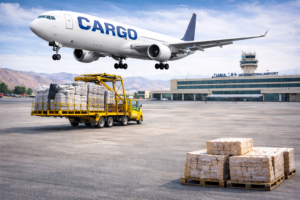KABUL (SW) – Thousands of children in Afghanistan are struggling with multifaceted crises such as hunger, famine, and other challenges.
Afghanistan is considered one of the most unsafe countries for children, with the Global Multidimensional Poverty Index report indicating that 58.9% of the impoverished population in Afghanistan are children.
Poverty, unemployment, and lack of guardianship have forced many children to work on the streets of Kabul, becoming breadwinners for their families.
Shadab, 11-year-old, and Shoaib, 12-year-old, are among the thousands of children who have been working as cobblers on the streets of Kabul for the past four years. These children bear the responsibility of providing for their families’ basic needs.
Shadab said: “There are five people in my family. I earn 50 or 100 afghanis a day and bring bread home. I have a younger brother who also works. I want to be at home, go to school, and study; I want to have my own profession.”
“I polish shoes; the situation is bad. I work here to make a few afghanis for food. I work every day, earning 150 to 200 afghanis. The work I do just brings enough to buy one meal until night,” Shoaib also expressed.
According to data from the United Nations Office for the Coordination of Humanitarian Affairs (OCHA), 19% of children in Afghanistan are engaged in child labour. Many children go to school hungry every day, and under the shadow of poverty, 2.9 million children are suffering from malnutrition.
Mohammad Amin, another child who sells goods on the streets of Helmand, says he would like to go to school like other children, but poverty forces him to work. “We are poor, and I can’t go to school. I am busy working here from morning to evening. This work is very hard. I want to go to school and become a doctor or an engineer,” he said.
Farid, who is deprived of education, has been collecting scrap iron from the streets of Ghor to sell and support his family. “We have no money; I collect scrap iron and go buy bread. I don’t study; I work daily, earning 5 to 30 afghanis, and spend it on household expenses.”
Muzhda Azizi, a child rights activist, says that children’s engagement in hard labour keeps them away from education, putting their futures at serious risk. “Children are deprived of their education and childhood, and they cannot lead a prosperous life. It also has a very negative impact on their mental health, and they cannot have a stable future. On the other hand, it negatively affects society as well.”
Meanwhile, officials from the Ministry of Labour and Social Affairs say that children have been victims of natural disasters and war for decades. Samiullah Ebrahimi, spokesperson for the ministry, says the de-facto government has been working to address children’s issues and has built orphanages for orphaned children.
“Orphanages have been established in Kabul and other provinces for orphaned children. Nearly 10,000 children live in these orphanages, receiving services such as food, clothing, and health services. We are paying close attention to their living conditions. All expenses are covered by the ministry’s budget,” He added.
On World Children’s Day, November 20, the United Nations Office for the Coordination of Humanitarian Affairs (OCHA) in Afghanistan has announced that Afghan children hope for a peaceful life, access to education, and a bright future.
The European Union has also expressed its support and commitment to Afghan children on this day through educational programs, healthcare, and protective services.






